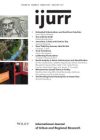The increasing threat of climate change has created a pressing need for cities to lower their carbon footprints. Urban laboratories are emerging in numerous cities around the world as a strategy for local governments to partner with public and private property owners to reduce carbon emissions, while simultaneously stimulating economic growth. In this article, we use insights from laboratory studies to analyse the notion of urban laboratories as they relate to experimental governance, the carbonization agenda and the transition to low‐carbon economies. We present a case study of the Oxford Road corridor in Manchester in the UK that is emerging as a low‐carbon urban laboratory, with important policy implications for the city’s future. The corridor is a bounded space where a public‐private partnership comprised of the City Council, two universities and other large property owners is redeveloping the physical infrastructure and installing monitoring equipment to create a recursive feedback loop intended to facilitate adaptive learning. This low‐carbon urban laboratory represents a classic sustainable development formula for coupling environmental protection with economic growth, using innovation and partnership as principal drivers. However, it also has significant implications in reworking the interplay of knowledge production and local governance, while reinforcing spatial differentiation and uneven participation in urban development.
Details
Written by:
James Evans, Andrew Karvonen
Digital Object Identifier (DOI)
10.1111/1468-2427.12077
About DOI
Read full article as PDF
Read full article as HTML
See the references for this article
